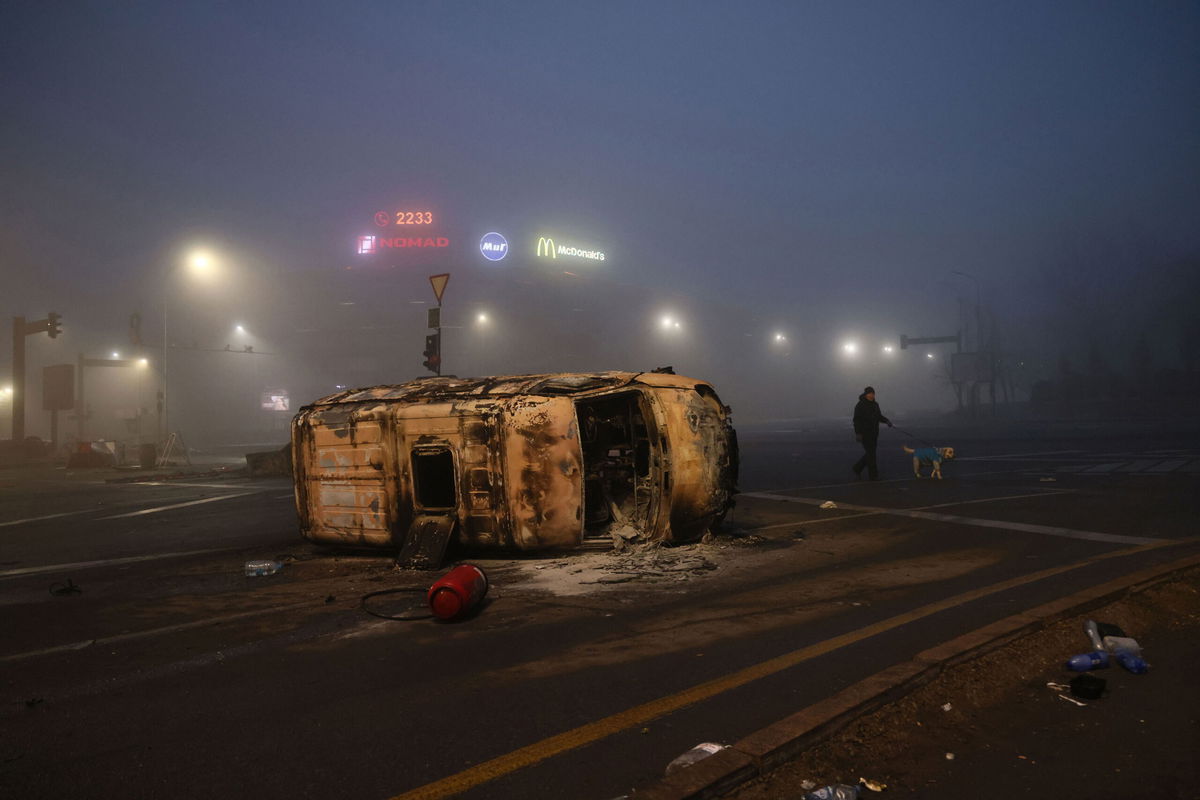Kazakhstan is huge for crypto mining. Political upheaval could jeopardize that

Political turmoil in Kazakhstan is hitting the country's vast bitcoin mining industry
By Diksha Madhok, CNN Business
Political turmoil in Kazakhstan is hitting the country’s vast bitcoin mining industry.
The Central Asian nation plunged into chaos as violent protests sparked by rising fuel prices left dozens killed and hundreds injured. As part of the mayhem, internet and telecommunications cuts have been reported nationwide — and that’s having an impact on local cryptocurrency mining operations, which are among the largest in the world.
Kazakhstan emerged as a popular mining hub last year, after neighboring China cracked down on the activity — curbs Chinese authorities said were necessary to protect the country’s efforts to reduce carbon emissions.
Cryptocurrency mining is a complicated process by which new coins are entered into circulation. Mining requires high-powered computers that solve complex mathematical puzzles to create a new “block” on the blockchain. It requires significant computer power and electricity, and Kazakhstan, with its rich energy resources, became an attractive alternative to China for miners.
Kazakhstan accounted for more than 18% of the global Bitcoin network hashrate in August last year — the latest month for which data was available, according to the Cambridge Centre for Alternative Finance. That’s second only to the United States. Hashrate refers to the total computational power that is being used to mine cryptocurrency, according to CoinDesk.
It is still unclear when internet services will be restored in Kazakhstan, making it hard to know how deeply the impact will be felt by crypto miners. According to internet monitor Netblocks, connectivity had been shut for 36 hours as of Friday morning.
Just a few hours into the internet blackout, the hashrate saw a 12% fall, tweeted Larry Cermak, the vice president of research at crypto website The Block.
Investors are getting jittery. The price of a single Bitcoin fell to $42,000 on Friday, its lowest level since last September. The cryptocurrency has also been under pressure after the US Federal Reserve signaled it may unwind economic stimulus more aggressively than expected, which has made investors wary of riskier assets.
The protests in Kazakhstan began over a spike in fuel prices. But there are also other longstanding issues behind the public fury, such as income inequality and economic hardship, which have all been exacerbated during the coronavirus pandemic, according to Human Rights Watch.
This uprising might lead miners to now look elsewhere for their operations, according to Anirudh Rastogi, founder of tech law firm Ikigai Law, which works with cryptocurrency exchanges in India.
“It will eventually come down to miners finding the right hub for their activities,” he said. “They need a place with political stability and cheap electricity.”
Already, Kazakhstan has been struggling to cope with the huge demands on its energy grid due to the rise in crypto mining, the Financial Times reported in November, adding that power shortages in the country have led to a major crypto mining farm being shut down.
According to Rastogi, such problems in major crypto hubs may force the industry to accelerate adoption of more sustainable technology for mining, which consumes much less electricity.
The-CNN-Wire
™ & © 2022 Cable News Network, Inc., a WarnerMedia Company. All rights reserved.

